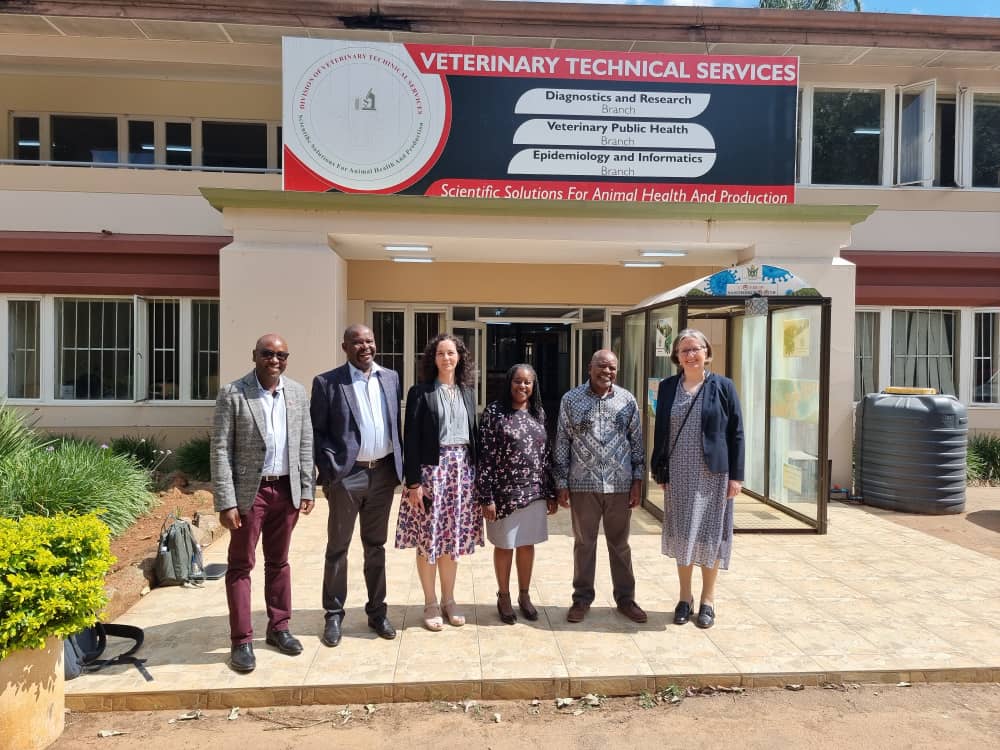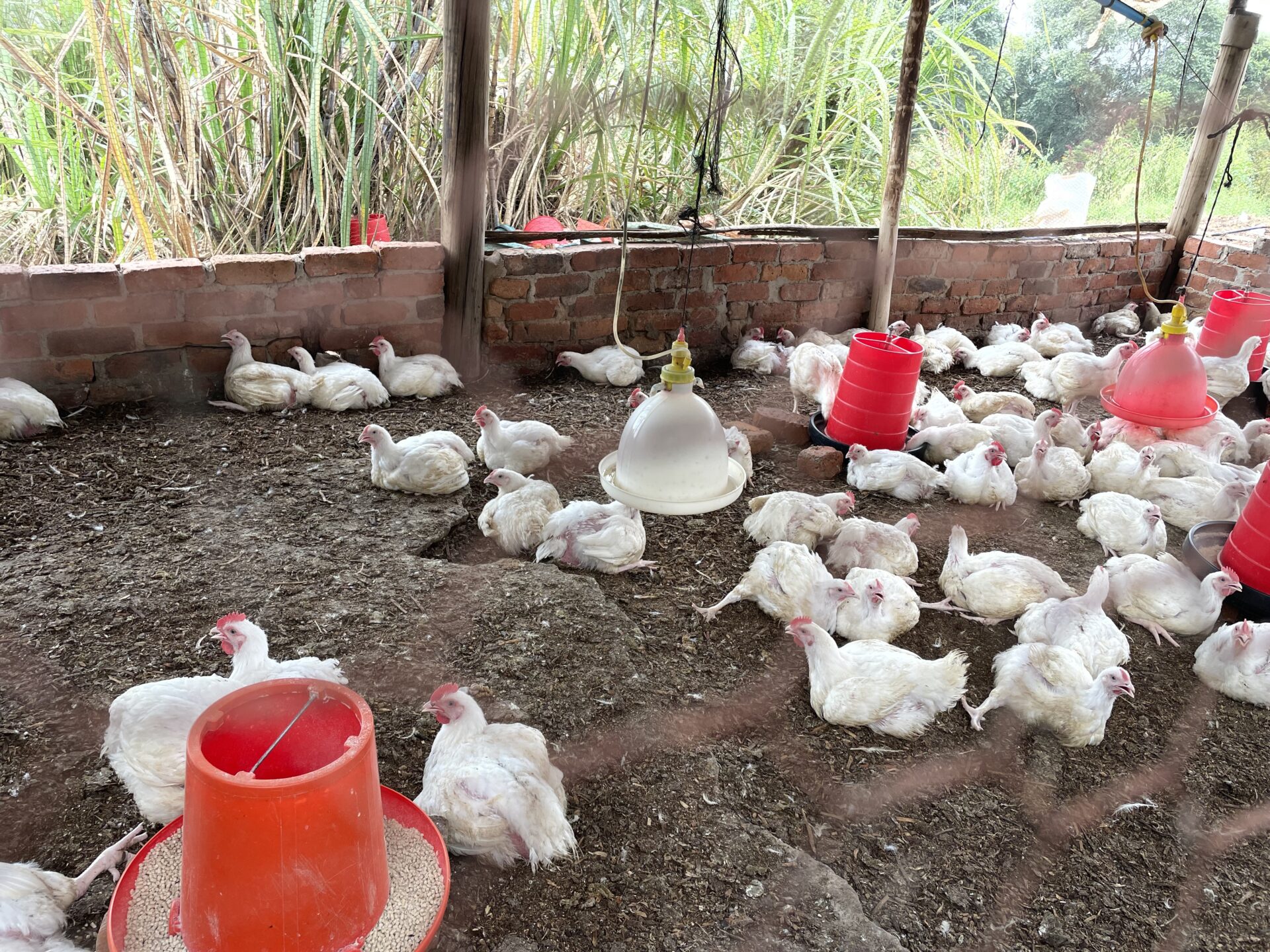The Republic of Zimbabwe has joined ICARS as a Mission Partner after a Memorandum of Understanding was signed between ICARS and the Republic of Zimbabwe represented by the Minister of Health and Child Care; The Minister of Lands, Agriculture, Fisheries, Water and Rural Development; and the Minister of Environment, Climate, Tourism and the Hospitality Industry. The partnership acknowledges our shared interest in mitigating AMR from a One Health perspective, and marks the beginning of two projects in human and animal health, with the potential co-development of a third environmental project.
In a statement about the collaboration, Dr Josphat Nyika, Senior Chief Director, Directorate of Veterinary Services from the Ministry of Lands, Agriculture, Fisheries, Water and Rural Development said:
The national AMR ‘One Health’ Tripartite of Zimbabwe expresses its gratitude to ICARS for the unwavering support towards supporting AMR projects in the human and the animal health sector. The signing of the Memorandum of Understanding (MOU) between ICARS and the AMR tripartite represented by the Secretaries of Health, Agriculture and of Environment marks another great milestone that demonstrates the commitment of all the parties to partner and tackle the threat of AMR through implementation of the ICARS funded Poultry Biosecurity and the AMR communication projects in Zimbabwe. We are grateful for this investment and support from ICARS and assure that the Government of Zimbabwe through the AMR ‘One health’ tripartite will give the required support to ensure the successful implementation of the projects.
Background
Zimbabwe launched its first National Action Plan for AMR in 2017, after a situational analysis of AMR in human, animal, and environmental sectors in the country. Findings from the analysis showed significant and growing resistance, including indications of high levels of multidrug resistance in E. coli. Antimicrobial use (AMU) in both humans and animals was identified as the main driver for increased AMR. The guiding principle of the NAP is a whole-of-society engagement including a One Health approach. Since the launch, however, financial constraints and economic pressures have slowed implementation.
Collaborative projects
With financial and technical support from ICARS, two projects have now launched in Zimbabwe:
Strengthening biosecurity practices in the poultry value-chain in Zimbabwe, to reduce the use of antibiotics
Poultry, especially broilers, contribute significantly to food and income security in Zimbabwe. But as more people venture into poultry production, lack of experience and knowledge about good poultry husbandry often causes low productivity and high mortality, which some farmers attempt to curtail through prophylactic use of antibiotics. Using educational initiatives, this project aims to reduce and refine antimicrobial use in small to medium scale broiler farms by improving biosecurity and animal husbandry practices.
Promoting rational use of antibiotics for common infectious conditions, in primary care and community settings in Zimbabwe
Irrational use of antibiotics, a main driver of AMR, is widespread in Zimbabwe. Several surveys have found that most patients are being prescribed antibiotics, empirically and often inappropriately. Most of the antibiotic misuse in community and primary care settings occurs during management of syndromic conditions like upper respiratory tract infections and diarrhoea. Prescription of more than one antibiotic at the same time is also widespread. This project aims to address the inappropriate prescribing, sales and use at primary care level, in private pharmacies and by the community respectively for common self-limiting infections such as diarrhoea and respiratory tract infections.

From left: Dr Mirfin Mpundu, Dr Pious Makaya (Department of Veterinary Technical Services), Dr Kristina Osbjer, Dr Chenai Majuru (Central Veterinary Laboratory), Dr J Nyika (Directorate of Veterinary Services), Helle Engslund Krarup.
Field visits
In March 2023, an ICARS delegation visited Zimbabwe to meet country partners and attend inception meetings for the projects.
Kristina Osbjer, Veterinary Advisor, participated in launching workshops, field missions and the poultry project inception meeting alongside 60+ other participants. The inception meeting provided an opportunity to:
- inform key partners on the commencement of the project
- capture lessons learned from other initiatives and projects to reflect on transferable knowledge
- discuss project implementation plans with a focus on feasibility, partnership and sustainability
The human health project team hosted a stakeholder meeting, where ICARS presented a short introduction, and the project coordinators introduced the scope of the project. This lively session was followed by a five-day workshop with the country teams, led by Sabiha Essack, Senior Implementation Research Advisor, and Annick Lenglet, Science Team Lead. The workshop brought together the country team to work through feedback from the Technical Advisory Forum, establish clear objectives and plan activities and outputs for the various work packages.
Next steps
With the MOU signed, and the project inception phase ending, we look forward to beginning implementation of the new projects and sharing news and updates with you as they progress on the ground.

